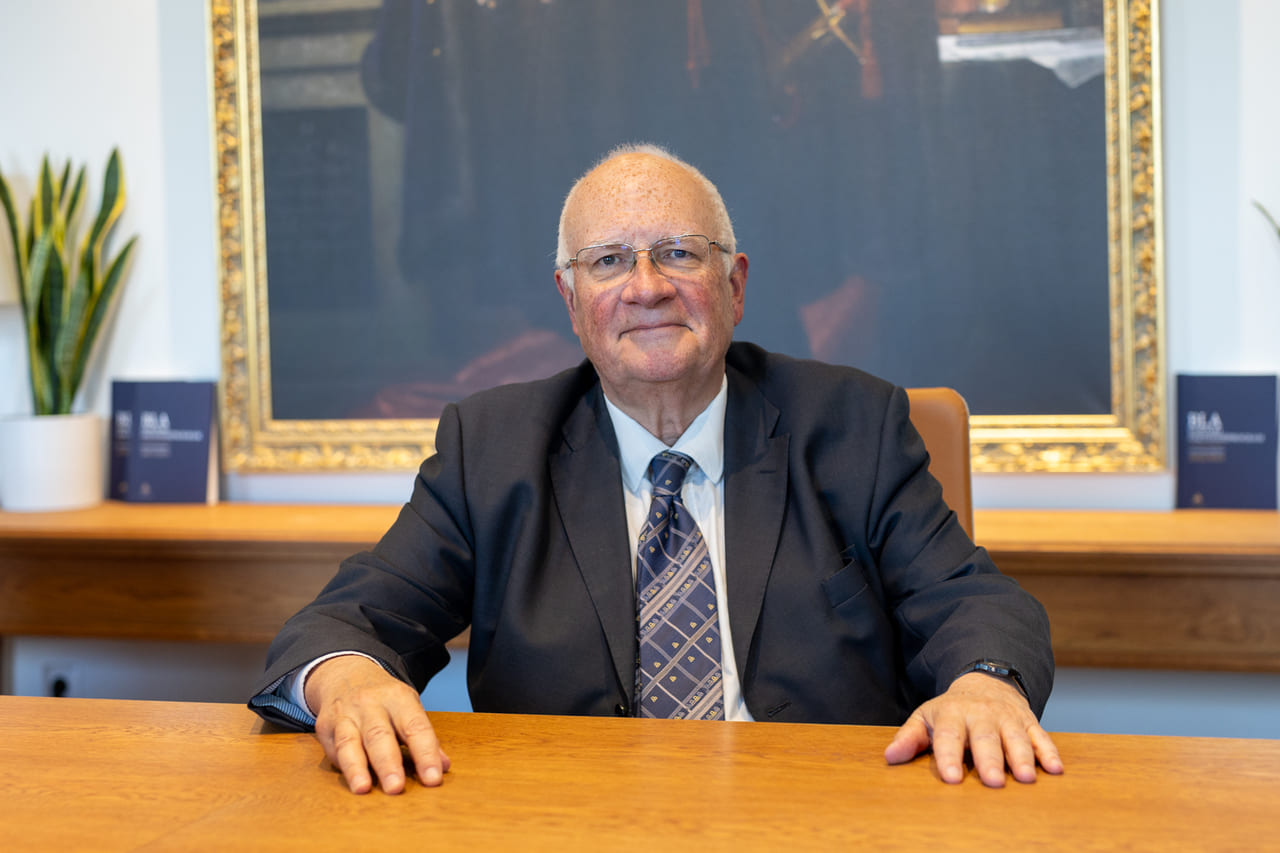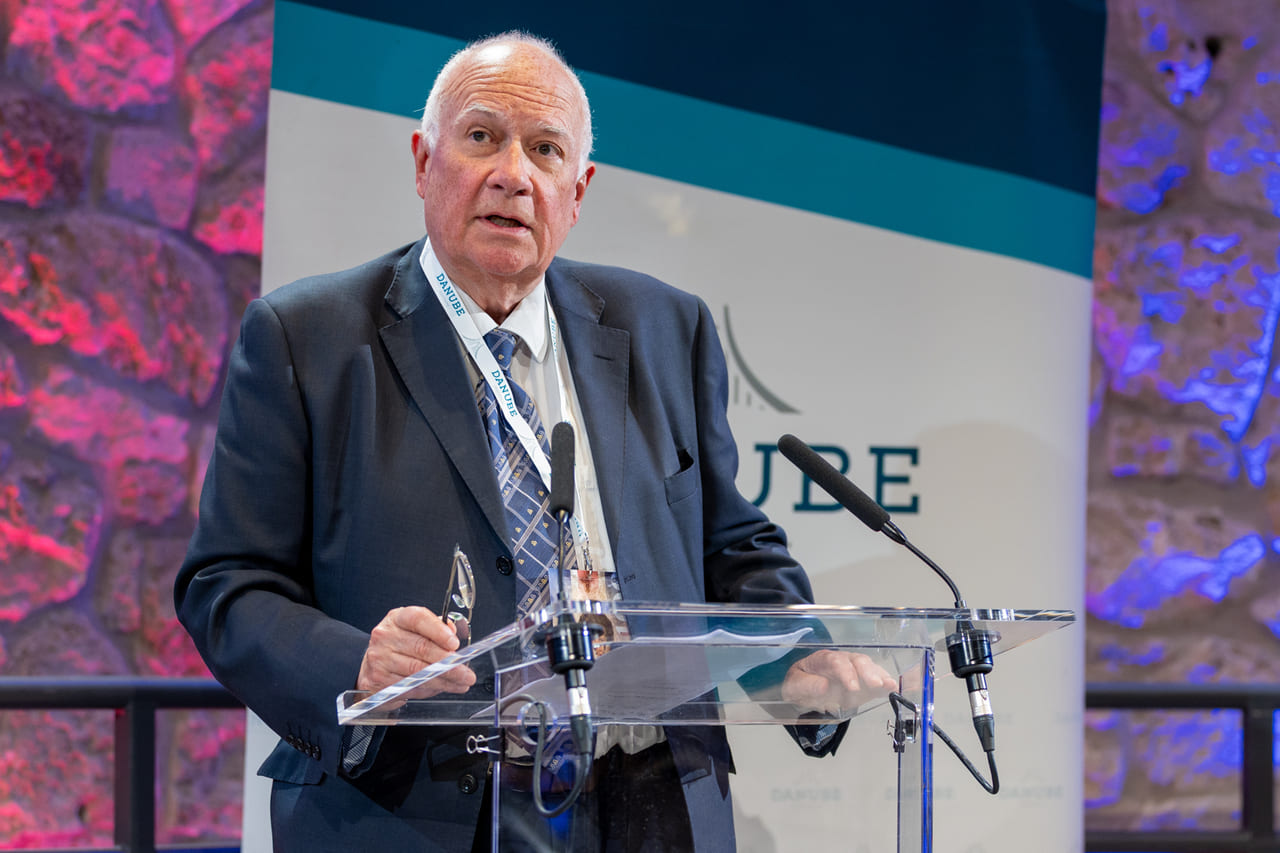On Thursday 15 May, at 7.00 pm, Mate Ćurić, COK general secretary, and I, attended the Počasni Bleiburški Vod Commemorative Academy held in Vijenac hall on Kaptol. This was the occasion at which the Zbornik Međunarodnog stručno-znanstvenog simpozija Kultura sjećanja na ratne i poratne žrtve Bleiburške Tragedije i Križnoga puta hrvatskog naroda (Proceedings of the International Professional and Scientific Symposium: Culture of Remembrance of War and Post-War Victims of the Bleiburg Tragedy and the Way of the Cross of the Croatian People) was introduced. My paper, “Bleiburška tragedija i odgovornost – mentaliteti i motivi” (The Bleiburg tragedy and responsibility – mentalities and motives), formed part of that collection.
Commemorating 80th anniversary of Bleiburg massacre
 On Friday 16 May, we attended the 80th commemoration of Bleiburg in Bleiburg itself. It was my first visit. I was pleased that we were now in the company of my compatriot – he is both British and Russian – Count Nikolaj Tolstoy, who suffered so much personally for telling the truth about the behaviour of the British authorities at Bleiburg and Viktring in his book The Minister and the Massacres.
On Friday 16 May, we attended the 80th commemoration of Bleiburg in Bleiburg itself. It was my first visit. I was pleased that we were now in the company of my compatriot – he is both British and Russian – Count Nikolaj Tolstoy, who suffered so much personally for telling the truth about the behaviour of the British authorities at Bleiburg and Viktring in his book The Minister and the Massacres.
I do not generally believe in public acts of regret for the sins of our predecessors. It is pointless. Yet it is impossible not to feel shame as well as sorrow for what the British did on this occasion. I felt that shame. I expressed it in an interview on the spot to Croatian television – while also pointing to the fact this was a crime of Communism. Naturally, blaming Communists for anything in Croatia is too strong for the mainstream media to report. So nothing appeared.
We visited the cemetery and then the Bleiburg memorial at Unter-Loibach, where wreaths were laid and prayers were said. The behaviour of those attending the occasion was quiet, dignified, sad, subdued, unprovocative, and not the slightest bit political.

Unacceptable situation: no crest and no Croatian inscription
I was, therefore, surprised to find myself facing, within a meter or so, an angry looking, muscle bound, shaven headed, tattoo covered, Austrian policeman, with a sub machine gun slung across his ample girth, glaring back and forth, hoping that one of the elderly Croats might conveniently cause trouble. I then was angered to hear from one of the Croats how he had been fined by the Austrian police 1000 euros on the spot for carrying the “wrong” sort of flag (with the first field white, no “U”, so perfectly respectable and not Ustaša) and trying to place a candle with the same crest at the foot of the memorial. I was also disappointed by what I saw on the memorial itself.

Only afterwards was I informed about the complicated background, but whatever the rights and wrongs – and it is still being argued before the court in Austria – the present situation is unacceptable. There is no crest, no Croatian inscription and even the German inscription has been either deliberately vandalised, or just allowed to deteriorate, so that several letters have fallen off, and not been replaced.
There is a point at which dishonouring the dead must stop. The Austrian authorities are by their behaviour dishonouring Croatia’s dead.
Afterwards we attended Holy Mass in the beautiful St. Peter and Paul parish church. The celebrant and preacher was Dr Željko Tanjić, Rector of the Croatian Catholic University.
Presentation of Igor Omerza’s book: Slovenska UDBA i Počasni Bleiburški vod
Dinner at Bleiburg was preceded by the presentation by the Slovenian historian and journalist Igor Omerza of his new book, Slovenska UDBA i Počasni Bleiburški vod (Slovenian UDBA and Honorary Bleiburg Squadron). Like Omerza’s other books, most of which are unfortunately still only in Slovenian, this is essential reading. It documents the acts of Yugoslav state terrorism and persecution conducted over the years against the PBV and the individuals associated with it – including the placing of a bomb in 1966 in the Hrust guesthouse where the PBV were to meet for lunch.

Formal ceremony at Mirogoj cemetery and mass at Macelj
On Saturday morning Mate Ćurić and Count Tolstoy attended the formal ceremony remembering the Bleiburg martyrs at Mirogoj cemetery. Then the three of us went to the commemoration and mass at Macelj, the site of the first mass grave – or more precisely collection of graves – of those returning on the Križni put inside Croatia. The atmosphere here was very different from the tension at Bleiburg. A Memorial Church of the Passion of Jesus (Spomen-crkva Muke Isusove) has been built in 2007 at Donji Macelj– and outside it, Archbishop Križić of Split celebrated Holy Mass and preached to a congregation, which included the Prime Minister and other members of the Government, as well as the COK and PBV contingents.

The archbishop stressed the need to continue searching for and identifying the victims of Bleiburg and the Way of the Cross. It is to be hoped that Ministers heard and absorbed the message. Anyone wanting to know more about the Macelj site and the historical background can consult, as I have, the excellent book by Damir Borovčak, U spomen žrtvama Macelj 1945.: povodom 70. obljetnice komunističkih zločina (In memory of the victims of Macelj 1945: on the occasion of the 70th anniversary of communist crimes).

After returning to Zagreb, the tireless 90-year-old Count Tolstoy delivered a fascinating lecture about his family background and his experiences with the British establishment and judicial system at our COK office in Tomašićeva 11. Among our guests were historians, senior politicians, the leadership of the PBV, and many others.
Author: Robin Harris, the President of COK and author of Croatia: A History – From Revolution to Independence.




